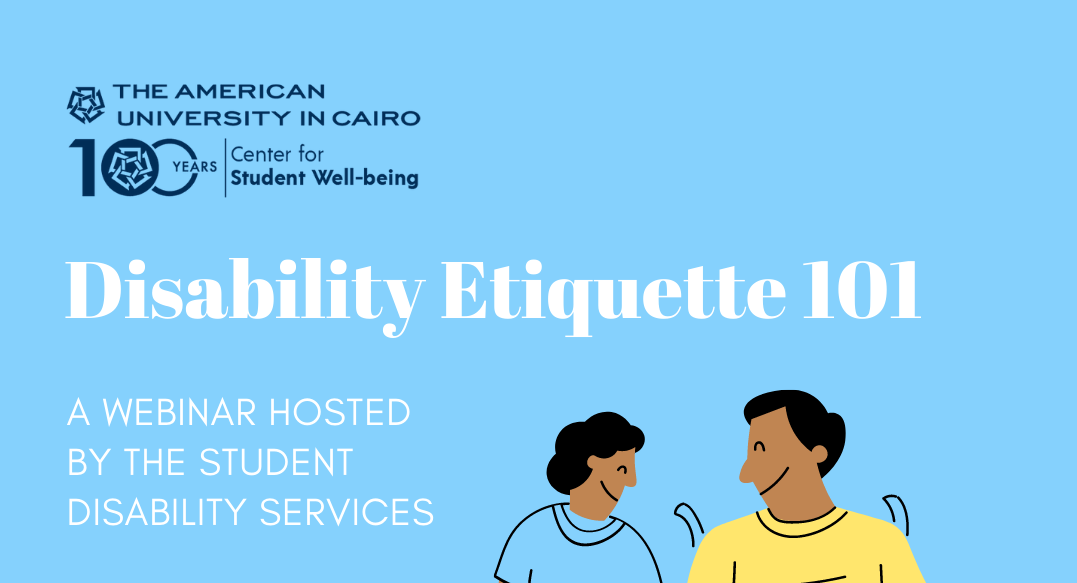By: Nourhan ElAraby
@nourhanelarby
The Center for Student Well-Being is working toward an inclusive campus by educating the community on how to be both supportive and respectful of disabled people.
In a webinar titled “Disability Etiquette 101”, Nada Mosallam, officer of Disability and Accommodations, and Alexandra Gazis, associate director of Student Disability Services, shared with the audience how to treat people with disabilities.
“AUC supports all of the learning disabilities, visual, hearing, motor impairment, and speech impairments, autism spectrum disorder (ASD), attention-deficit and hyperactivity disorder (ADHD) and chronic health issues,” Mosallam said.
She stressed that people should always ask before helping a person with disabilities. It is always up to them on whether or not they need help.
She also shared details on how to assist people with visual impairments when necessary.
“You should not remove their cane even if it’s blocking the way, ask them for it. We always use our elbow to be able to guide them. You identify yourself, and you should always be as descriptive as possible because it helps them be familiar with their surroundings,” Mosallam said.
She added that people need to be conscious of the way they deal with Common Speech Communication disorder, also known as stuttering.
“They might take more than usual time to finish their sentence, do not help them to finish their sentence. Stay calm for them to be neutral, and slow down your pace a little bit, otherwise it puts a pressure on the person to speak quickly,” Mosallam said.
Gazis discussed the fact that people with hearing impairments need to see facial expressions to understand what is being said.
“You should not create any obstacles by blocking your face, or blocking your mouth. Because a lot of people with hearing impairment use hearing aids or can read sign languages. So, it all depends on your body language, your lip reading and your hands,” Gazis told The Caravan.
She also added that one of the major complications people with disability are facing is the way society treats them.
“The most challenges I feel people with disabilities face are others who are creating barriers for them. Also, the cultural barriers regarding how people stigmatize persons with disabilities and how people are having a certain attitude towards persons with disabilities,” Gazis told The Caravan.
Ivy STEM International School Psychologist Nour Basha also said that people with disabilities usually face a lot of pressure and challenges from society that end up affecting their self-esteem.
“We are all the same, and we have to accept people’s differences. They need to be accepted and loved and assured if they need help, the same as all of us need help,” Basha said.
Amina Fahmy is an AUC alumni who works for an organization called Child Integrated Psychology Programs (CIPPO), which supports children’s mental health through integrated psychology programs.
She noticed through her own experience that autistic children face some challenges with communication.
“The challenges I have come across so far are sensory perception issues, social skills defects, cognitive processing delays and expression challenges.” Fahmy explained.
Fahmy added that for people with autism eye contact can be very challenging as it limits their ability to socially communicate. Also, a deficit in language can make all this harder as people with autism are not able to communicate with others verbally or express what they want.
